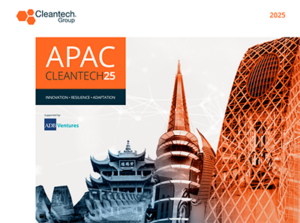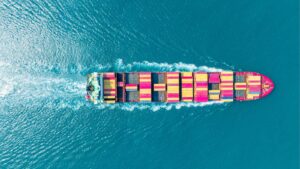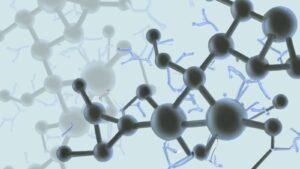Recent Deals – 4 April 2023
Train, manage, or stalk livestock from the comfort of a bed; leather waste into new materials; carbon-free energy storage with ammonia as fuel – Recent Deals worth looking at:
Agriculture & Food
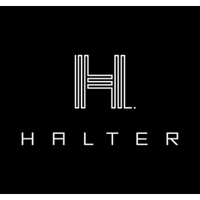 Halter (2016) has made sure that farmers can rest easy at night knowing they won’t misplace their sheep again! The company has designed wireless, solar powered, and GPS-featured collars to track livestock which can be managed from a mobile app or PC. The device allows livestock to be managed through audio cues from the collar that herd the cattle or train them to stay within a specified area. Further, the sensors allow the herd’s movement and temperature to be monitored so that farmers can identify health issues or related livestock needs early on.
Halter (2016) has made sure that farmers can rest easy at night knowing they won’t misplace their sheep again! The company has designed wireless, solar powered, and GPS-featured collars to track livestock which can be managed from a mobile app or PC. The device allows livestock to be managed through audio cues from the collar that herd the cattle or train them to stay within a specified area. Further, the sensors allow the herd’s movement and temperature to be monitored so that farmers can identify health issues or related livestock needs early on.
Halter has secured $85M in a recent Series C round led by Bessemer Venture Partners with participation from Blackbird Ventures, Promus Ventures, and Ubiquity Ventures. Its technology trained 100,000 cows in 2022 alone, and as countries like New Zealand have a dairy and beef herd of roughly six and four million, respectively, which must fit into under 50,000 farms, this fenceless approach will change the game. The funding from this round will go towards that, connecting farmers to their herds at an international scale.
Energy & Power
![]() Amogy (2020) has cracked a carbon-free energy storage system through its compact reactor technology which converts liquid ammonia into hydrogen components to generate power. Amogy integrates an ammonia storage tank, reformer, and fuel cell into a power pack. The reformer achieves 99% conversion at a temperature of 500C by way of optimised treatment and doping in the catalyst design; as part of the process, the unreacted ammonia is removed from the fuel cell feed stream.
Amogy (2020) has cracked a carbon-free energy storage system through its compact reactor technology which converts liquid ammonia into hydrogen components to generate power. Amogy integrates an ammonia storage tank, reformer, and fuel cell into a power pack. The reformer achieves 99% conversion at a temperature of 500C by way of optimised treatment and doping in the catalyst design; as part of the process, the unreacted ammonia is removed from the fuel cell feed stream.
The company has secured $50M in a recent Series B round from Zeon Ventures, Temasek Holdings, SK Innovation, MOL Plus, DCVC Bio, AP Ventures, Saudi Aramco Energy Ventures, Yanmar Ventures, and Korea Zinc. As Amogy ventures down the road of commercialisation, these fresh fundings will be used to support its organisational development and to kick-off manufacturing for its ammonia-to-power technology. The aim is to bring its first product to market by 2024.
Materials & Chemicals
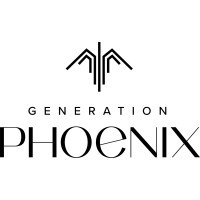 Gen Phoenix (2007) offers an ethical twist to our human obsession with leather by creating new materials from recycled leather waste. From luxury fashion to transportation sectors, most industries are plagued with excessive material waste – but Gen Phoenix’s is at the forefront of changing this dynamic with its technology having already provided four million seat covers globally, which in turn diverted 8,000 tons of leather waste from landfills.
Gen Phoenix (2007) offers an ethical twist to our human obsession with leather by creating new materials from recycled leather waste. From luxury fashion to transportation sectors, most industries are plagued with excessive material waste – but Gen Phoenix’s is at the forefront of changing this dynamic with its technology having already provided four million seat covers globally, which in turn diverted 8,000 tons of leather waste from landfills.
Gen Phoenix has secured $18M in Series B funding from Material Impact Fund, Dr. Martens, InMotion Ventures, ETF Partners, Tapestry, and Hermes Global Private Equity Environmental Innovation Fund. This fresh capital will go towards its development of next generation materials, including plant-based leathers, and to its mission of further expanding into the fashion industry through partnerships with leading consumer brands.
Further, as circular technologies tighten their grip on the fashion industry, with more companies engaging in post-consumer waste and new materials, Gen Phoenix is in the perfect position to build strong partnerships with clients sharing the same vision of contributing to net-zero by 2040.
Resources & Environment
 IntegrityNext (2016) offers a supply chain monitoring software through its ESG certification solution’s platform that supports organisations with many suppliers by automatically auditing and monitoring each company for ESG rules. The cloud-based platform aims to manage ESG risks, cost-effectively check suppliers against ESG requirements (those set by companies and those from a wider body of regulation) and improve overall supply chain sustainability.
IntegrityNext (2016) offers a supply chain monitoring software through its ESG certification solution’s platform that supports organisations with many suppliers by automatically auditing and monitoring each company for ESG rules. The cloud-based platform aims to manage ESG risks, cost-effectively check suppliers against ESG requirements (those set by companies and those from a wider body of regulation) and improve overall supply chain sustainability.
IntegrityNext has secured $109M in a growth equity round led by EQT Growth. The funds will be used to continue to build out its platform and support its go-to-market position. IntegrityNext has formed a growing customer-base, including a few would-be suppliers across Europe and the U.S., offering a bunch of opportunities which this funding will help it meet.
Transportation & Logistics
 Norsepower (2012) is sailing towards sustainability with its Rotor Sail Solution, an auxiliary wind propulsion system for fuel efficiency in large ships. When wind connects to its spinning cylinder-shaped rotor sails, it creates a lift force (the Magnus Effect), allowing the main engines to be throttled back without losing cruise speed, meanwhile saving fuel, and reducing emissions.
Norsepower (2012) is sailing towards sustainability with its Rotor Sail Solution, an auxiliary wind propulsion system for fuel efficiency in large ships. When wind connects to its spinning cylinder-shaped rotor sails, it creates a lift force (the Magnus Effect), allowing the main engines to be throttled back without losing cruise speed, meanwhile saving fuel, and reducing emissions.
Norsepower has bagged $30M in a Series C round led by Mirova, with participation from The Finnish Climate Fund, OGCI Climate Investments, Nefco, TESI, and VNT Management. The funding will support Norsepower’s mission to decarbonise the shipping industry, one vessel at a time, by being injected into production to scale up the reach of its technology.
Norsepower’s technology is appropriate for retrofitting existing fleets, and as there are currently 30,000 maritime vessels on the water today, that would equate to 80 megatons of CO2 emission reductions annually.
Enabling Technologies
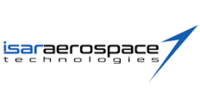 Isar Aerospace (2018) is bringing the mystifying void known as space that much closer to small and medium satellites. The underdog, or small satellite, is often boxed out of exploration opportunities by its larger peers. Instead, Isar Aerospace is on a mission for accessibility, aiming to make space access an affordable and sustainable option for commercial, institutional and government customers through launch vehicles dedicated to resupplying satellite constellations, with both low-cost and flexible access for smaller satellites.
Isar Aerospace (2018) is bringing the mystifying void known as space that much closer to small and medium satellites. The underdog, or small satellite, is often boxed out of exploration opportunities by its larger peers. Instead, Isar Aerospace is on a mission for accessibility, aiming to make space access an affordable and sustainable option for commercial, institutional and government customers through launch vehicles dedicated to resupplying satellite constellations, with both low-cost and flexible access for smaller satellites.
The firm has officially raised the largest SpaceTech financing round globally to date (2023), with its $165M Series C round by 7 Industries, Bayern Kapital, EarlyBird Venture Capital, HV Capital, Lakestar, Lombard Odier, Porsche Automobil Holding, UVC Partners (Entrepreneurship Venture Capital), and Vsquared Ventures.
This funding will serve a few key areas: it will enable the scaling of its production capabilities to meet the growing demand for launches of small- and medium-size satellites; it will fund new initiatives and product ideas; it will allow Isar Aerospace to continue building on its vertical integration and automated production capabilities that lower the average cost of building rockets; and finally, the bulk of funds will be directed towards Isar Aerospace advancing its inaugural flight and accelerating the final development push for its Spectrum launch vehicle, a rocket capable of placing up to 1,000 kilograms into Low Earth Orbit.
